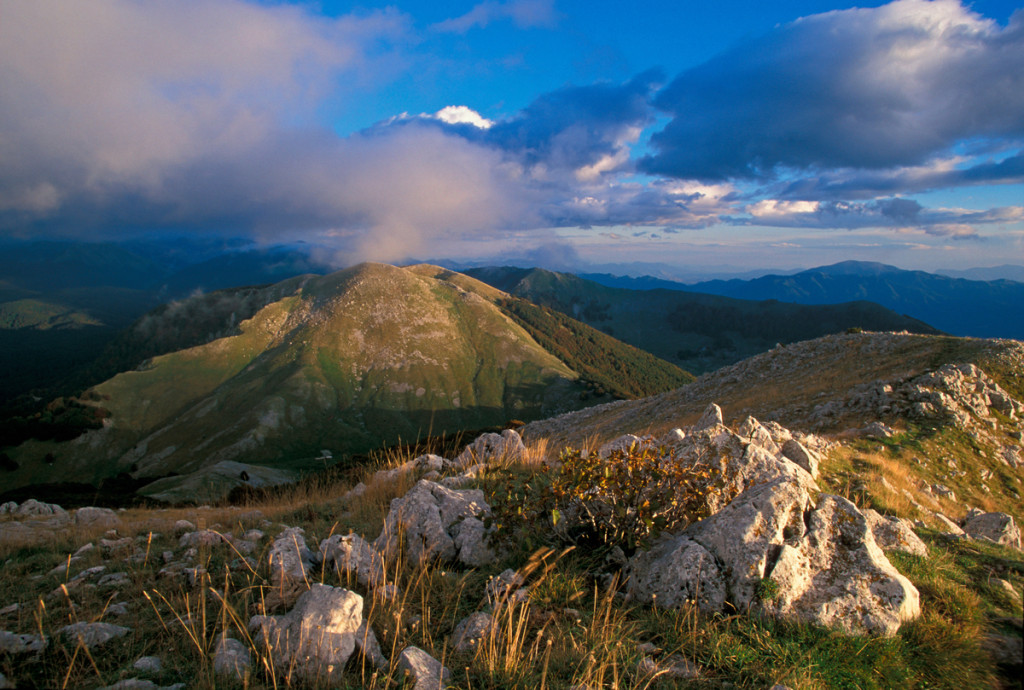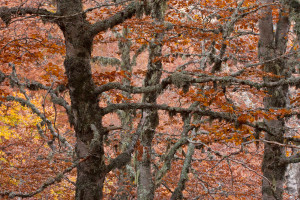The small municipalities of Gioia dei Marsi and Lecce nei Marsi in the Central Apennines have decided to bet on nature and to find new ways to earn money from the wilderness on their own “door step”. Creating new opportunities for local businesses and at the same time ensuring an even better protection of those areas. Land abandonment and depopulation are problems that hundreds of regional and EU initiatives so far have failed to solve, in spite of uncountable amounts in subsidies. But now, thanks to the beginning return of wild nature, these problems could instead be made into opportunity. Gioia dei Marsi and Lecce nei Marsi give a good example how the problems are turned into opportunities.

These two municipalities in the Central Apennines in Italy have always been keepers of natural values of a first-rate quality, which is the reason they are already for ninety years an integral part of the Parco Nazionale d’Abruzzo, Lazio e Molise (PNALM). For decades they have now been suffering from the disappearance of the traditional farming and grazing. Poor economic and employment opportunities have led to a massive exodus of their citizens towards larger cities.
At the same time, this depopulation, together with the conservation measures taken by the national park, has resulted in an almost unbelievable return of nature to most of the territory of these municipalities. Apart from a visible recovery of forest and shrub overgrowth in the areas previously cultivated or grazed, one can now witness a spectacular comeback also of large wildlife species like wolf, red deer, roe deer and wild boar. The golden eagle and raven came back to soar over the valleys that lead down to the Fucino plain, where at night one can again hear the eagle owl calling. Meanwhile, the rare and endangered Marsican race of the brown bear has always been the main “protagonist” in these wonderful areas.
Gioia and Lecce have always been considered as “marginal” areas for the central economic system and “peripherical” also in comparison to the more developed tourism centres within the Abruzzo National Park. They played a leading role in the protection of nature here, but so far reaping very few economic benefits from the high natural quality of their territories and the presence of its exceptional fauna.
Surrounding the village of Gioia Vecchio is an area that wild animals seems to love. For that reason, tourists have been coming there for decades from several European countries, in the hope of seeing the wildlife. They reach this partially abandoned village and often linger there for hours, scanning the slopes with binoculars in the hope of spotting some of the wolves, deer, wild boar, eagles or bears which often enough do show up, at a distance.
The area is one of the best places in Europe to observe, easily and without causing any disturbance, the bears move freely around in their habitat. Now, the municipality of Gioia has decided, in cooperation with “Rewilding Apennines” to start up a number of actions in order to ensure a better management of the visitor flows and to safeguard better protection for these areas that lie just outside the Abruzzo National Park. Among them, to create new lodging facilities through renovating the old, classic buildings in the village and to build and rent out a network of wildlife watching hides, so that the visitor flow will also render cash income for the village inhabitants.
The vast wild beechwoods that cover parts of the municipality of the neighboring Lecce dei Marsi and, in particular, the “Selva Moricento” are considered among the best preserved forests of its kind, not only in Italy but also in Europe. After having sampled trees which were over five centuries old, in fact, researchers at the National Park in collaboration with the University della Tuscia of Viterbo declared that the “Moricento” forest together with the forest in the “Val Cervara” (Villavallelonga) should be considered among the most ancient beech woods on the European continent. Therefore, it is easy to understand their inclusion within the network of European beechwoods leading to the nomination as a UNESCO “World Heritage Site”. The administrators of Lecce who believe in the importance of nature conservation to ensure a future for their citizens are of course very proud of this.

To follow the ancient paths shaded by beech trees, listening to the sounds of nature, the drumming of the white-backed woodpeckers and the howl of the wolves; to cross bear footprints in the snow or to simply spend a night in a tent at the heart of these impressive forests and half-open grasslands are to many people life-changing experiences. Rewilding Apennines is convinced that the high natural values of these areas, combined with their proximity to large cities such as Rome and Naples, is a great basis for developing a responsible and high-quality ecotourism. Restarting and renovating some of the existing accommodation facilities, ensuring the protection of sensitive areas and involving hunters and local youth to monitor and guide the visitors. These are among the ideas that Rewilding Apennines and the administration of Lecce are working on, in order to revive an economy that has been silent for too long.
World-class ecotourism products, addressed primarily to a keen international audience, can become an alternative to defeat the on-going crisis and provide new opportunities, for the benefit both of nature and people. Rewilding Apennines is convinced that such an opportunity can be grasped only by making the local communities the main players in this development process, and abandoning the old cultural barriers that often put nature conservation up against all economic development. Making these areas into an international quality tourism destination is a challenge that ”Rewilding Apennines” and the two municipalities are now taking on together, to make a rebirth of these territories, which are largely outside the national park, and make them hopefully into inspiring examples for people facing similar challenges elsewhere.
